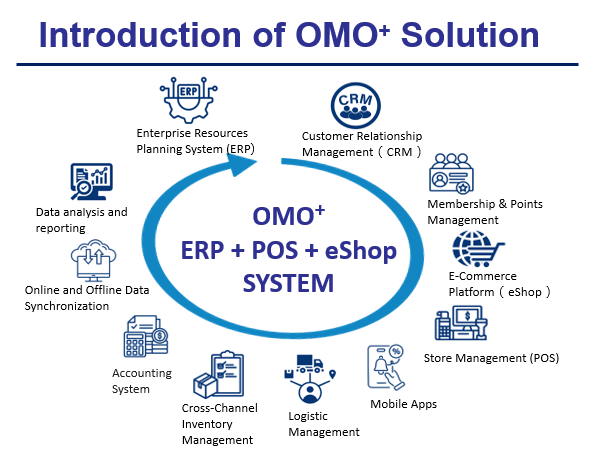- info@eastop.com
Facing These E-commerce Hurdles?
📦 Inventory Never Syncs? Oversell and disappoint customers.
🔀 Orders Processed Manually? Endless errors and inefficiency.
📊 Data Trapped in Silos? No clear insights for decisions.
🛒 No B2B Portal? Miss out on serving distributors effectively.

Empower Your B2B Distributor Platform
Launch Your B2C Official Store & App
Automate Your Order Processing
Unify Your Data Analytics
💎 Seamless Integration, Unified Data
🛡️ Full Data Sovereignty & Security
🔧 Flexible Customization, Upgrade-Friendly
🏢 Localized Service & Support
Online Merge Offline:
refers to a business model that integrates online and offline elements, starting with data and placing 'people' at the core. By comprehensively capturing consumers' shopping histories and behaviors online and offline, analyzing their preferences and needs, this approach enables the integration of all channels, facilitating mutual traffic flow and creating a smooth shopping experience, ultimately achieving synchronized growth in performance.
The Application Programming Interface (API) serves as a standardized interface that defines communication and data exchange protocols between various software components. It enables developers to access and utilize system functions in a straightforward manner without necessitating an in-depth understanding of the system internals. By utilizing standardized API interfaces, systems can be seamlessly integrated, enhancing interoperability between them. This integration reduces development costs by allowing developers to directly access APIs without the need for redevelopment. Additionally, it improves development efficiency by enabling developers to concentrate on their business logic without delving into lower-level system implementation details. The Dongsheng ERP system offers authorized or customized APIs tailored to specific requirements.
1.An open source self-hosted e-shop/b2c/b2b platform:
2.Marketplace b2c platform:
3.Rental eshop platform:
4.Customized eshop/b2c/b2b platform:
B2B (Business-to-Business)
B2C (Business-to-Consumer)